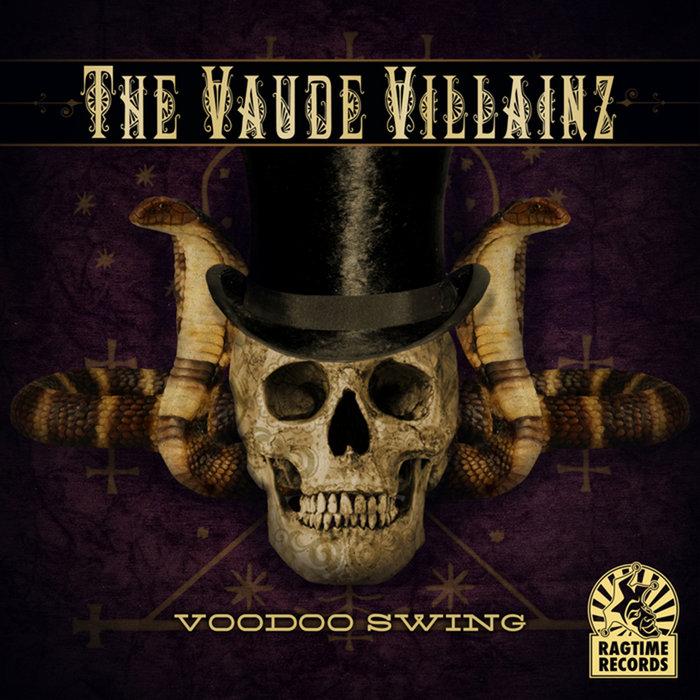
Voodoo Swing EP – Ragtime Records
this blog is GROOVY – check out great Soul, Funk, Jazz, Hip Hop, Bass, Breaks , Reggae, House n many more TUNES
Hey there, music lovers! Grab your banjo and let’s dive into the vibrant world of ragtime, a musical genre that danced its way into the hearts of folks back in the late 19th century. Picture a lively piano player pounding out joyful tunes while you tap your feet to some snappy rhythms. That’s ragtime for ya!
Ragtime is all about those syncopated rhythms and catchy melodies. Think of it as the great-great-grandparent of jazz, blending African American folk traditions with European classical influences. It was often played on piano, but you’d also find it in ensembles—those jazzy sounds made their rounds everywhere!
Ragtime started bubbling up in the 1890s, primarily in St. Louis and New Orleans (the birthplace of so much good stuff!). The genre really took off when Scott Joplin cranked out his legendary compositions—like “Maple Leaf Rag”—which became an instant hit!
Did you know Joplin wasn’t just a one-hit wonder? He was a composer who wanted ragtime to be respected as serious art! He even wrote an opera called Treemonisha! Talk about ambition!
By the early 1900s, ragtime was everywhere—from bars to brothels—and it was even adored by classy ladies sipping tea at fancy parties. People couldn’t get enough! Imagine flappers doing their thing to those infectious beats—it must’ve been quite a scene.
The popularity peaked around 1910 when pieces were selling like hotcakes on player pianos—those funky contraptions that played music automatically using rolls of paper with holes punched through them.
Okay, now let’s sprinkle some fun facts about our beloved rag musicians:
Jelly Roll Morton: This eccentric pianist claimed he invented jazz (not just played it!) and had quite a big ego for someone named after dessert! Rumor has it he once said if you didn’t want to play along with him, he could “break your leg.” Yikes!
Eubie Blake: Known for his wit almost as much as his finger skills on the keys; Eubie would say mix-ups can happen at performances too! One night during a concert someone yelled “Play something!” So he turned around and said “You first!” Ouch!
Fats Waller: A larger-than-life character known for both his tunes and personality; legend has it Fats had more than one gig canceled because he loved partying too much—imagine showing up hours late because you’re still recovering from last night’s shenanigans!
The ‘Ragged’ Influence: Did you ever hear about how white composers tried throwing together rags? Some famous names dabbled here—even if they weren’t quite capturing that authentic vibe! They’d try imitating what they heard but fell short—a classic case of trying too hard.
Vincent Lopez’s Crazy Ride: This bandleader supposedly made such wild arrangements during live performances that dancers would literally trip over each other trying to keep up—not exactly ideal when everyone’s supposed to be showing off their moves!
As styles shifted toward swing and blues in the roaring twenties, ragtime began fading away into relative obscurity—but don’t count it out yet! In the ’40s-’50s revival era came bands like The Red Hot Peppers bringing back those sweet old-school vibes—and guess what? Younger generations got hooked again thanks mostly due diligence from passionate record collectors who loved hunting down rare material!
Fast forward to today where we still cherish old records featuring this delightful sound—the likes are frequently used in films or commercials making us feel all nostalgic…from Pixar films introducing kids through Hallelujah grooves right through dance competitions showing everyone how it’s done aligning funky rhythms across ages.
So here’s where we wrap things up folks—the history behind ragtime ain’t just notes scribbled onto sheets; it’s people living life full throttle creating shared memories while tapping feet furiously against wooden floors till early morning light bursts forth reminding us every few decades how special this sound truly remains today already faded yet never forgotten proper respect solidified alongside lively tales echoing throughout cultures worldwide celebrating rhythmical freedom itself forever groovy spirit alive within harmonies crafted centuries past continues vibing strong among musicians inspired by glorious predecessors whom pioneered paths we cherish most dearly today celebrating pure joy found inherently tied together atop spirited beats endlessly bouncing along infinite groove lines shaping histories waiting simply sung anew across levels beckoning magic spread wide open hand claps come join all friends stay warm throughout travels onward sharing laughter wrapped surely gentler nights spent jamming fiercely free allowing treasures unfold lifetime remembered cherished always bold enjoyed thoroughly unforgettable indeed without doubt .

Voodoo Swing EP – Ragtime Records